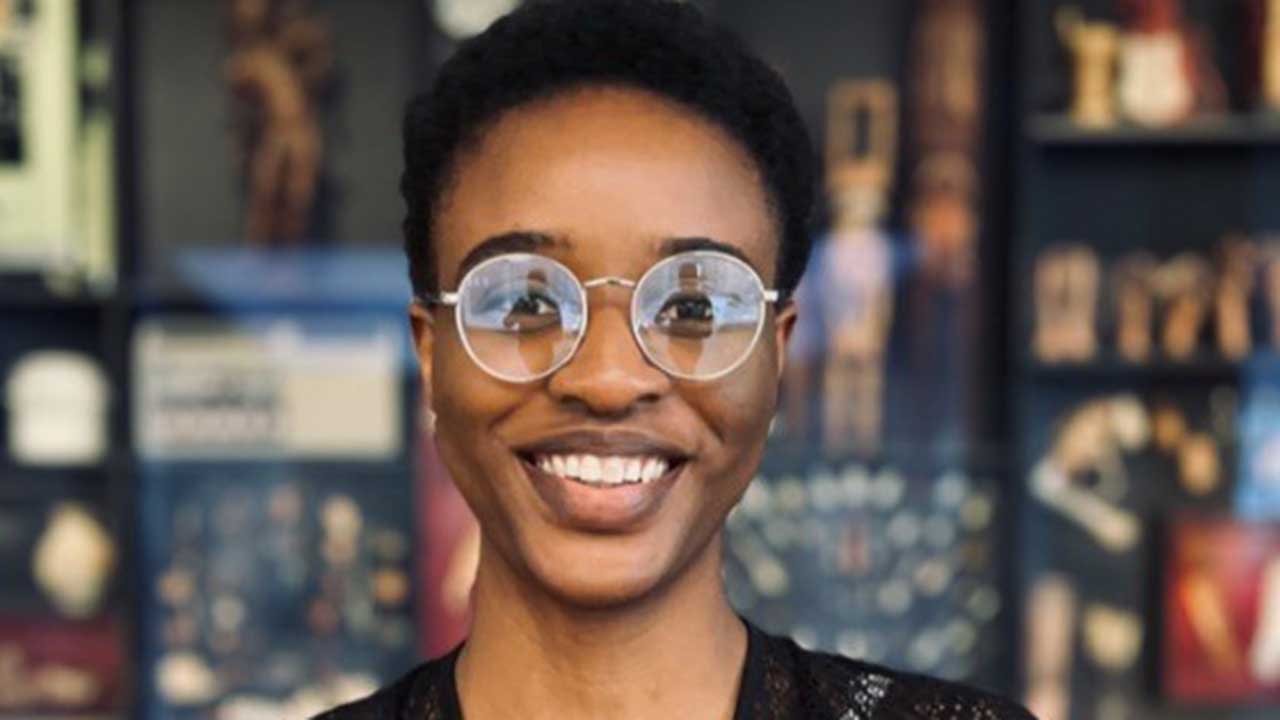 Co-founder and CEO, Bidhaa, Adeola Adebayo, has continued to channel her passion for data and technology into designing more efficient processes and systems for all.
Co-founder and CEO, Bidhaa, Adeola Adebayo, has continued to channel her passion for data and technology into designing more efficient processes and systems for all.
With a career spanning healthcare, product management and now entrepreneurship, Adeola remains driven by her commitment to solving critical problems through innovative technological solutions.
As a microbiology student, Adeola spent her holidays interning at hospitals and research institutes, where she gained firsthand insight into the challenges facing the Nigerian healthcare sector. She observed issues such as resistance to adopting new technological solutions, the lack of digitised patient records and inefficient, manual workflows. “Working with various hospitals and research institutes over the years allowed me see my potential future as a clinical professional and I saw that I would face the same challenges if I chose that path,” she said.
After graduating as the best student in her department in 2018, Adeola chose to pause her plans to attend medical school. While her passion for healthcare remained strong, the challenges within the sector led her to explore opportunities in tech instead. However, before diving into the tech industry, she recognised the need to acquire the necessary skills. During her service year, she enrolled in a software engineering programme, where she gained foundational knowledge in HTML, JavaScript and CSS.
As Adeola approached the end of her program, she received her first job offer as a product analyst at Gumi and Company, a product-led technology firm that develops ideas, products, and people to improve the future. The role required adaptability and discipline, qualities she naturally possessed. She later attended the Utiva Product School, where she earned a certification in Agile Product Management. This achievement facilitated her transition into a product management role at Gumi and Company.
In this role, Adeola was instrumental in developing the company’s first product, Schoot, an edtech platform designed to help teenagers acquire vocational skills online. Beyond product management, she led user experience and market research efforts, ensuring the platform addressed user needs and aligned with market demands.
In 2020, Adeola received scholarship offers for master’s programs from the University of Strathclyde, Kingston University, and Imperial College London. She chose to pursue a degree in International Health Management at Imperial College London, a decision that allowed her to merge her three passions: healthcare, entrepreneurship and technology.
“I was particularly drawn to Imperial because, after reviewing the course modules, I realised they covered everything from programming to entrepreneurship, business and healthcare,” she said. “It was the perfect blend, bringing all my interests together, that’s why I chose the program.”
While pursuing her master’s degree, Adeola joined Wellvis Health, a healthcare company dedicated to addressing health financing challenges for Nigerians. In her role as a product manager, she also contributed to developing business strategies, including preparing for a potential acquisition. Her efforts played a part in Wellvis Health’s acquisition by Wella Health in 2022, which significantly expanded its patient base from approximately 20,000 to 200,000 individuals.
This experience deepened Adeola’s understanding of how technology could revolutionise healthcare operations and improve patient experiences. Inspired by this, she accepted a role as an analyst at Accenture, a Fortune 500 technology consulting firm serving industries such as pharmaceuticals, healthcare, mobility and energy. “I wanted to join a company where I could replicate what I achieved at Wellvis Health. I had seen firsthand how technology could enhance healthcare operations,” she said.
Adeola received an offer from Accenture in 2021, with her start date set for September 2022. During that time, she returned to Gumi and Company in a part-time role as a product manager. In this capacity, she contributed to the development of a government-focused tech product. Her responsibilities included leading market research and user experience efforts for the agrotech, healthcare and government technology sectors, identifying product challenges and proposing innovative solutions for the Nigerian and West African markets.
After relocating to the UK to begin her role at Accenture, Adeola worked on a project with the National Health Service (NHS). Her team was tasked with ensuring that 22 NHS hospitals adopted Palantir’s Foundry Platform across their surgical departments. This implementation aimed to streamline operations and efficiently address a surgical waitlist of 100,000 patients, significantly improving healthcare delivery.
The Foundry Platform was a health tech tool designed to help hospital administrative staff manage waitlists more efficiently. It automated critical processes such as scheduling patient surgeries, coordinating pre-surgery preparations and required tests, and managing staff and ward availability.
Despite its potential, Adeola encountered a challenge she was familiar with from her earlier experiences in Nigerian hospitals: resistance to adopting new technology. “Surgeons preferred their pager to any other technological tool out there,” she said.
To address this reluctance, Adeola immersed herself in understanding the surgical staff’s workflow. She provided hands-on training to help them navigate the new system and gain confidence in its use. Additionally, she shadowed the staff throughout the day to observe their processes, identify any bugs or usability issues and relay actionable feedback to the product development team for improvement.
Over nine months, she trained 59 surgical staff members and championed the adoption of the Foundry Platform across five surgical wards. Collaborating with her team, she gathered data from five NHS trusts, which demonstrated the platform’s impact: a 28 per cent reduction in the surgical waitlist across the hospitals and a six per cent increase in operating theatre utilisation.
Adeola’s time at Accenture, combined with her previous experience at Gumi and Company, further solidified her understanding of how data and technology can drive solutions across diverse sectors. These experiences ultimately provided her with the skills and insights to launch her startup, Bidhaa, an AI-powered digital library offering in-depth insights into African startups, including their products, business models and revenue streams.
Earlier this year, Adeola decided to leave her role at Accenture and, alongside her co-founders, began building Bidhaa. Her diverse professional experiences have broadened her perspective on the platform’s potential and the opportunities within the edtech sector. “My experiences gave me a better understanding of what we could build Bidhaa into,” she said.
From aspiring to a career in healthcare to pivoting into product management and now co-founding a tech company, Adeola’s passion for problem-solving has been a constant driving force in her journey. As she continues to build Bidhaa, she remains dedicated to leveraging technology to address real-world challenges while empowering others to do the same.






